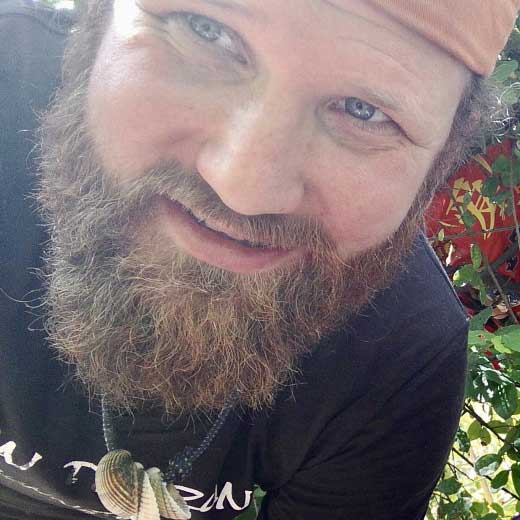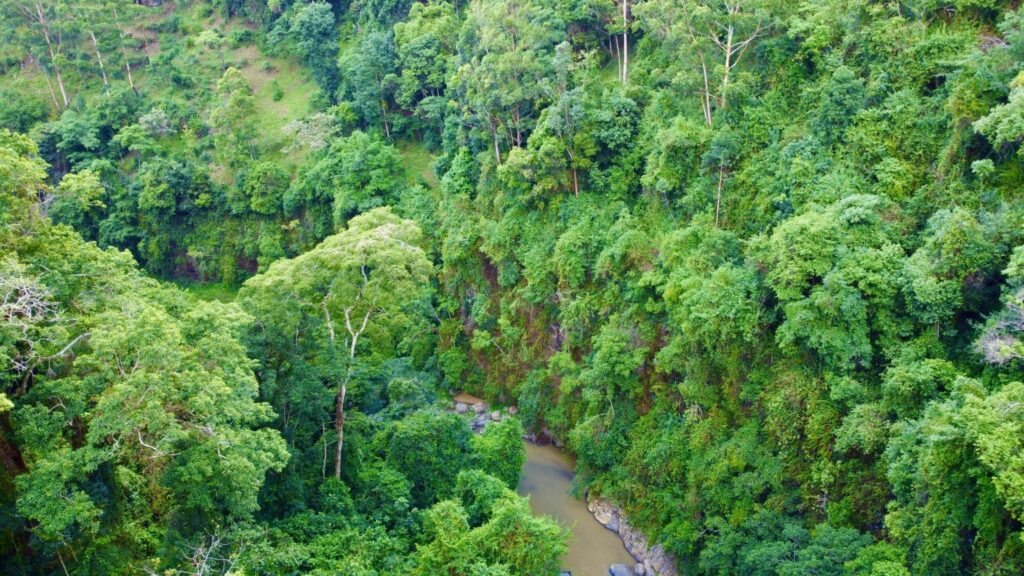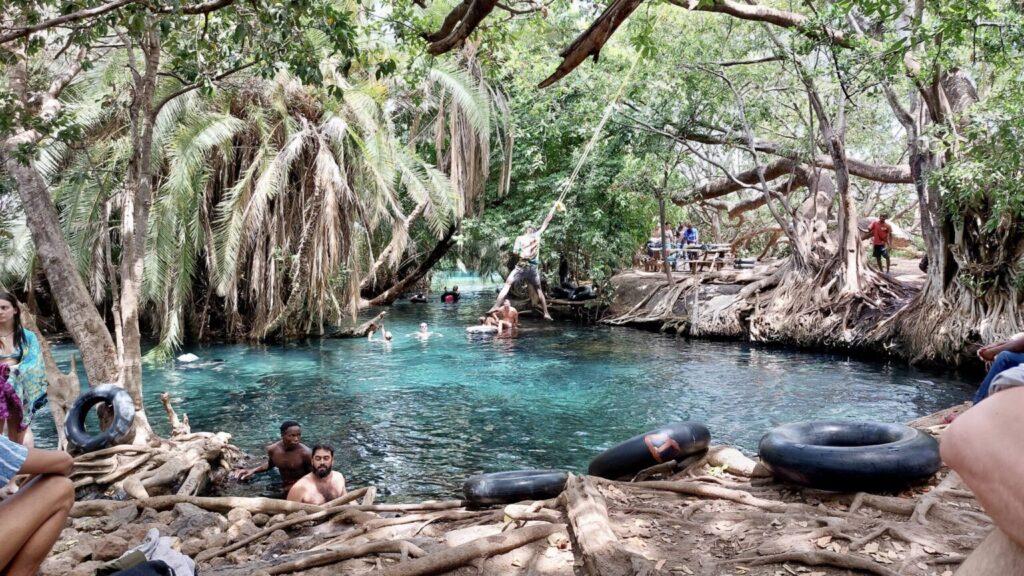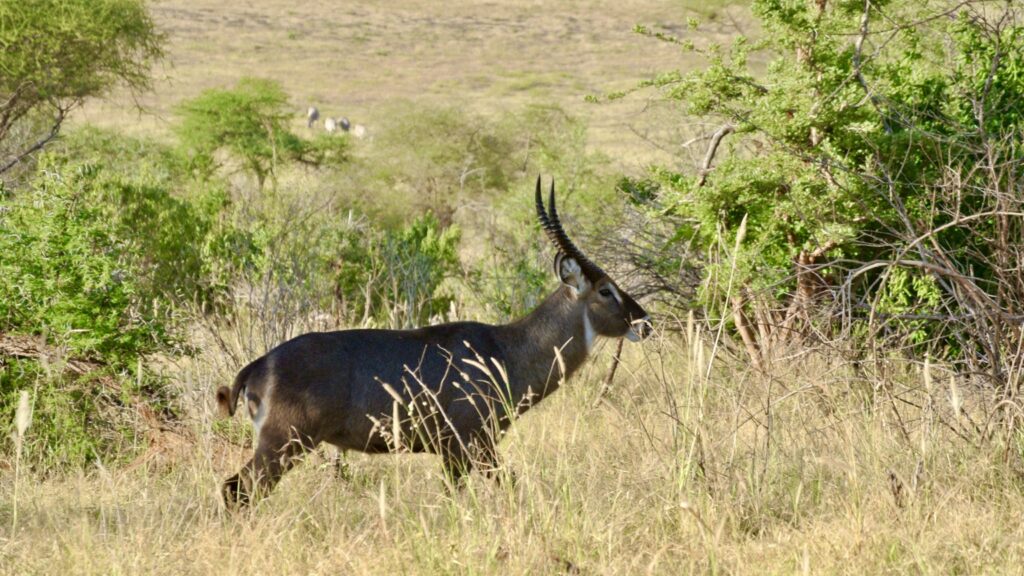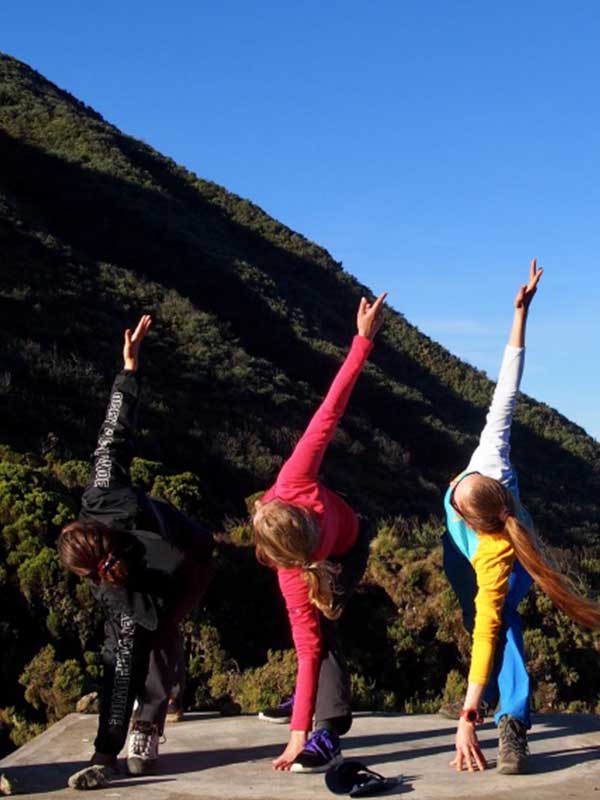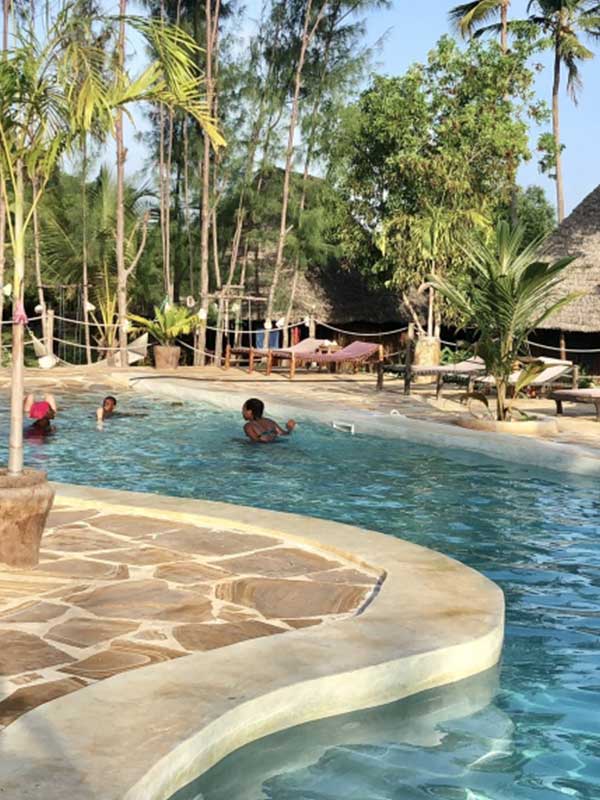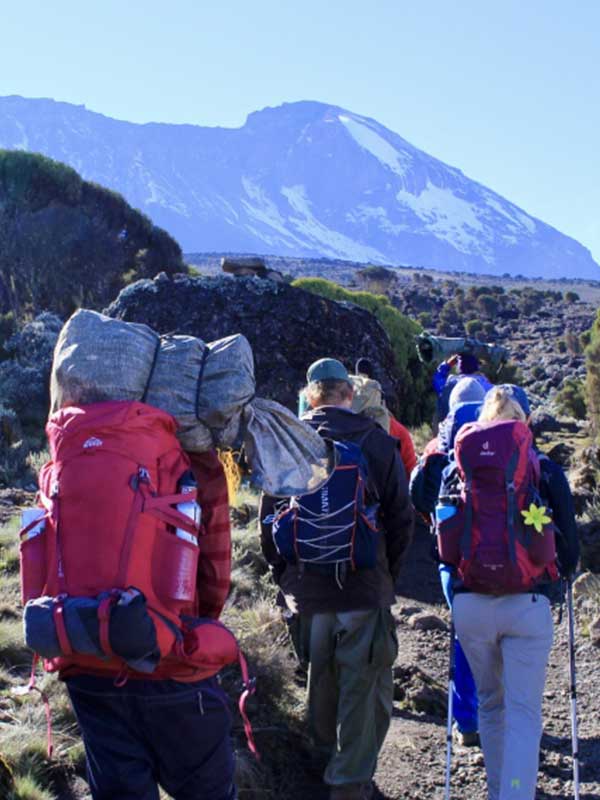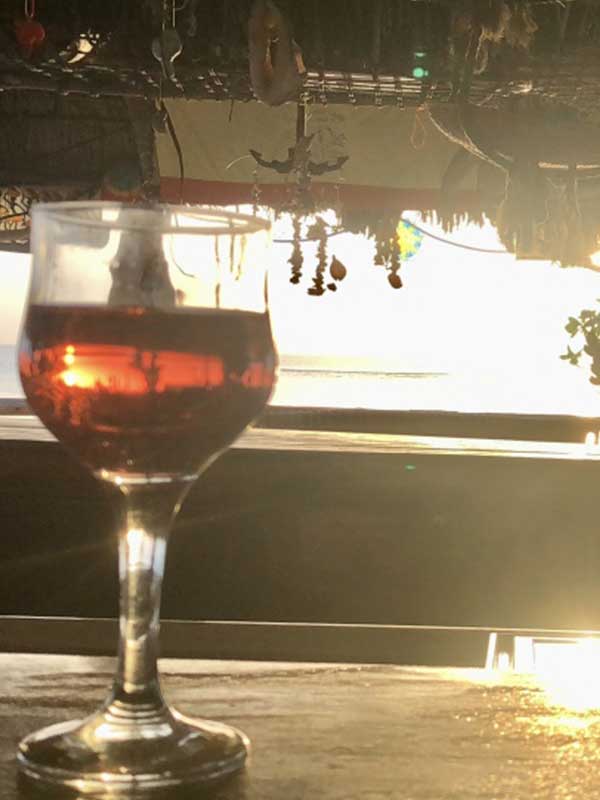F.A.Q
General Questions
What sets DjangoTours apart from other custom travel tours?

When researching travel agents and tour companies, you may come across many that claim to offer custom-tailored solutions, bespoke service, and individual tours. However, upon further investigation, you may find that these options are quite limited, with predetermined routes and group joining dates being the only real choices.
It can be incredibly frustrating to expect a custom-tailored service and end up with the same experience as everyone else, potentially even with others who ordered the same bespoke service. While this can be a fun and entertaining group experience, we believe that it should be advertised as such.
Additionally, we have certain limitations due to regulations by park authorities and the available routes. However, we do offer various options to choose from, such as different routes, climb length, accommodation, service, and group size. Not all options are available to all fitness levels or budgets.
The difficulty lies in clients not always being aware of these differences and having to decide based on marketing material which option to choose. That’s why we prefer to talk to our clients prior to booking. We understand that not all options are available to everyone, and we want to find out about their experience, budget, trigger points, and overall expectations. Absolute transparency helps us evaluate their needs and options, and we can then put together one or two options that are as close as possible to their needs.
Whatever our clients choose to book, there will be a price tag attached to it. We believe that the only way to satisfy our clients is to include services that they are willing to pay for.
Are you planning an individual Africa experience? Contact us here.
What sets DjangoTours apart from other custom travel tours?

When researching travel agents and tour companies, you may come across many that claim to offer custom-tailored solutions, bespoke service, and individual tours. However, upon further investigation, you may find that these options are quite limited, with predetermined routes and group joining dates being the only real choices.
It can be incredibly frustrating to expect a custom-tailored service and end up with the same experience as everyone else, potentially even with others who ordered the same bespoke service. While this can be a fun and entertaining group experience, we believe that it should be advertised as such.
Additionally, we have certain limitations due to regulations by park authorities and the available routes. However, we do offer various options to choose from, such as different routes, climb length, accommodation, service, and group size. Not all options are available to all fitness levels or budgets.
The difficulty lies in clients not always being aware of these differences and having to decide based on marketing material which option to choose. That’s why we prefer to talk to our clients prior to booking. We understand that not all options are available to everyone, and we want to find out about their experience, budget, trigger points, and overall expectations. Absolute transparency helps us evaluate their needs and options, and we can then put together one or two options that are as close as possible to their needs.
Whatever our clients choose to book, there will be a price tag attached to it. We believe that the only way to satisfy our clients is to include services that they are willing to pay for.
Are you planning an individual Africa experience? Contact us here.
What is the best time to visit Tanzania?
Tanzania Safari : Best time of the year ?
The decision is made : you are going to spend your holiday in Tanzania ! Congratulations, you have made a really good choice. You are now wondering when is the best time to go on a Tanzania safari. Our answer is… it depends ! It depends what you want to see, to do, if you prefer being alone in the national parks or if you like some company from other tourists.
Many people say that the best time to visit Tanzania is the dry season, from June to October, or during our winter from December to March. But according to us, there is no such thing as a bad time for your Tanzania safari : when to go to Tanzania depends on your preferences.
To help you make a decision on when to visit Tanzania, let’s have a look at the activities, places and animals you would like to do or see.
Best Time to visit Tanzania – By season
Tanzania is located in the southern hemisphere. That’s why when it’s summer in England or in the USA, it’s winter in Tanzania! The different seasons in Tanzania are : the dry season, the short rainy season, a new dry and hot season and finally, a long rainy season.
The dry season
From June to October, it’s winter in Tanzania, we call it the dry season. It hardly ever rains and the temperatures are pleasant. The weather is warm but you don’t suffer from the heat.
The short rainy season
often takes place in November and early December. It’s summer in Tanzania and it’s getting very hot. It rains especially at the end of the day but it does not rain as hard as during the long rainy season from March to May. The advantage of going to a safari in Tanzania during the short rainy season? Less tourists and amazing colors.
The hot and dry season
runs from December to February. It can be hot, very hot, especially towards the coast. It hardly rains. Not advised if you generally suffer from the heat.
The long rainy season
runs from March to May. It rains often and it is a bit less warm, but this to my opinion, not a reason not to visit Tanzania at that time of the year. Indeed, you are almost alone on the roads as most tourists do not come during this time of the year ! Another very important reason to visit Tanzania during the rainy season is that you also have more chances to see zebra and wildebeest in the Serengeti National Park. Some parks are difficult to access because of the rains, but our guides know where to go! If you love adventure and authenticity: Tanzanian nature is beautiful during the rainy season.
Best Time to visit Tanzania – By activity
To observe birds
You can observe birds the whole year, but you will probably see more birds during the rainy season.
Tanzania safari Best Time – animals and nature
Going on a Tanzania safari is possible all year round. You will just not see the same animals and the landscapes will look different.
We often hear that the rainy season is not the best time to visit Tanzania, but it is not true. On the contrary, the rainy season is when nature is the most beautiful, green and flourishing. Many travelers prefer to go to the northern and central parks (Serengeti among others) in the dry season, between June and October, and from December to February. The weather is nice, but you should know that it is also the peak tourist season: prices and occupancy rates of hotels, lodges and camps are high.
What about diving and snorkeling?
You can dive and snorkel in Tanzania all year ! To go swimming, we often recommend to go in January and February, or during the Tanzanian winter, in July and August. The rainy season is also raging on the coast and storms happen regularly, that’s why the rainy season is not the most popular time for diving.
Best time to visit Zanzibar
The best time to visit Tanzania Zanzibar, Pemba and Mafia, is during the Tanzanian winter, between June and September. On the Tanzanian islands, the climate is hot and humid, exceeding 30 degrees during the Tanzanian summer (from December to February). We recommend visiting Zanzibar between June and September, during the dry season. It’s a bit cooler, unless you really enjoy the heat.
What is the best time of the year to climb Mount Kilimanjaro?
All year round ! Admittedly, it is less easy at certain times of the year than at others (we think in particular of the rainy season). Note that there are strong temperature differences between the foot and the top of the mountain. Even if it’s hot a the foot of Mount Kilimanjaro, it can freeze at the top. February is often considered to be the best time to climb Mount Kilimanjaro. This is one of the hottest months and the temperature at the top is not too cold. If you can not go there in February, know that the whole period from December to February is good to climb on the roof of Africa!
Tanzania safari best time – By geographical area
There are different types of climates in Tanzania. Of course, you will not have the same weather on the island of Zanzibar, in the Serengeti National Park as at the top of Mount Kilimanjaro!
The Tanzanian coast enjoys a humid equatorial climate, where it averages between 25°C and 30°C. In contrast, the highlands and inland areas are subject to a temperate tropical climate. In the large parks of the north, the temperatures in the day are pleasant, but do not forget to bring a jacket for the evening because it is cold when the night falls.
There are several best times to visit Tanzania. Many tourists like to go during dry, sunny seasons from January to March and from July to October. However, if you want to meet fewer people on the road and if you suffer from heat, we advise you to go before or after the dry season in June or September. You will enjoy the great weather without being there during the high season.
Applying for a Visa to Tanzania?
Now, it’s time to make sure that your paperwork is in order. Yes, we know it’s boring, but it is essential to get everything right so that your arrival in beautiful Tanzania is as smooth as possible. It’s so important – please read on!
Q. Do I need a visa?
A. The short answer is yes, unless you hold a passport from one of the countries listed below. If your country is in this list, then the good news is that you are exempt from the requirement for a visa. If your country is not on this list, you must get a visa. As the list is updated frequently, please check immediately before applying.
Exempt countries:
Antigua & Barbuda Anguilla Ashmore & Certie Island Bahamas Barbados Bermuda Belize Brunei British Virgin Island British Indian Ocean Territory Botswana Cyprus Cayman Island Channel Island Cocoas Island Cook Island Christmas Island Dominica Falkland Island Gambia Ghana Gibraltar Grenada Guernsey Guyana Heard Island Hong Kong Isle of Man Jamaica Jersey Kenya Kiribati Lesotho Malawi Montserrat Malaysia Madagascar Malta Mauritius Macao Mozambique Nauru Naue Island Norfolk Island Namibia Papua new Guinea Rwanda Romania Ross Dependency Samoa Seychelles Singapore Solomon Island South Sudan Swaziland St. Kitts&Navis St. Lucia St. Vicent St. Helana South African Republic Trinidad & Tobago Turks & Caicos Tokelan Tonga Tuvalu Vanuatu Uganda Zambia Zimbabwe
Q. Once I get my visa, am I guaranteed entry to Tanzania?
A. As with most countries in the world, the possession of a valid Visa for the United Republic of Tanzania does not provide automatic right of entry into the country. The Immigration Officer at the port of entry may refuse entry to any person, if he is satisfied that such a person is unable to fulfil the immigration requirements or that such person’s presence in the United Republic of Tanzania would be contrary to national interests or security.
Q. Is it still possible to obtain a visa on arrival?
A. Although it is still possible to obtain a visa on arrival, you can also get your Visa via the official website www.immigration.go.tz. Please note that, once you have applied on-line, it can take up to three weeks for the visa to be issued, so please apply in good time.
Recent changes have meant that obtaining a visa on arrival in Tanzania can now result in lengthy delays as visitors have to queue three separate times to:
- Obtain a Government Control Number, then
- Pay for the Government Control Number, then
- Be checked by Tanzanian Immigration and have the visa issued
We urge everyone entering Tanzania through the five entry points listed below to apply on-line, to avoid having to join these three queues, which can take up to two hours.
Note, however, that currently only five entry points are fully equipped to accept the on-line visa. If you are entering Tanzania via any other entry point, you should still obtain your visa on arrival. At those other entry points (for example, Tarime Isebania), the on-line visa will still be accepted, but it will take longer to validate and will result in delays.
Entry points where the on-line visa should be presented:
- Julius Nyerere International Airport (DAR)
- Kilimanjaro International Airport (JRO)
- Abeid Amani Karume International Airport (ZNZ)
- Namanga (road border between Arusha & Nairobi)
- Tunduma (road border between Tanzania & Zambia)
Entry points where it is preferable to obtain your visa on arrival:
- Isebania Border
Q. Which visa should I apply for?
A. Nearly all those booking safaris or mountain climbs with us will need to apply for an ‘Ordinary’ single-entry visa. However, if you are intending to make multiple entries into the country, or are travelling for any purpose other than tourism, or are intending to stay in Tanzania for more than 90 days you should read the guidelines on the website carefully to ensure that you apply for the correct type of visa. All US citizens, please see ‘How much does a visa cost?’ below
Q. How do I pay for my visa?
A. During the online application process, you may pay for your visa by use of a credit card (Visa or Mastercard.) We at Easy Travel do not advise paying for your Visa by the ‘SWIFT transfer’ option offered on the Government website, as it can be difficult to trace payment and this may delay the granting of the visa and prevent your entry to Tanzania.
Q. How much does a visa cost?
A. Currently, a single-entry ordinary (tourist) visa costs $50 USD and a multiple-entry visa costs $100 USD. Note that US Citizens must apply for the multiple-entry visa, and pay $100 USD, even if they are only making a single trip. Prices for any other types of visa are detailed on the website.
Q. How do I know if my visa has been approved?
A. You will be notified by e-mail. Before receiving approval, you will be able to check the status of your application online.
Q. How long does my visa last for?
A. An ordinary single-entry visa will last for 90 days.
Q. Apart from being required to make a payment, what other documents do I need?
A. You will need to be able to upload a passport-size photo of yourself, the biographic data page of your passport, and a copy of your return flight ticket.
Please note that your passport must have validity for at least six months after the date of your departure from Tanzania, and also have at least one full unused/unstamped visa page.
Q. My visa application has been rejected. How do I get my fee refunded?
A. Unfortunately, fees paid for a visa application cannot be refunded.
Q. When should I apply for my visa?
A. Although the government website indicated that a visa application takes 10 days to process, we advise that you should apply for your visa as soon as you are able and recommended not less than 30 days before your departure for Tanzania.
Q. I am from a country which is listed below in the category of ‘Referred Visa.’ When should I apply for my visa?
A. We advise any visitors in this category to apply for their visas at least 90 days before their proposed arrival in Tanzania and to obtain visa approval before booking any flights or incurring other costs (such as non-refundable hotel bookings). Visitors from these countries will need to have a referral letter from Easy Travel: we can write this once we have received the deposit for their booking. Countries in this category are listed below, but as the list is updated frequently, please check immediately before applying.
Q. Referred Visa Countries:
Afghanistan Azerbaijan Bangladesh Chad Djibouti Ethiopia Eritrea Equatorial Guinea Iran Iraq Kazakhstan Republic Kyigten Republic Lebanon Mali Mauritania Niger Nigeria Pakistan Palestine Senegal Somalia Sri Lanka Somali land Sierra Leone Syria Tajikistan Turkmenistan Uzbekistan Yemen and Stateless persons or persons with refugee status.
Q. I have found several websites offering visas to Tanzania. Can I apply through any of these sites?
A. No, we strongly advise you to use only the official government website, www.immigration.go.tz. Other rogue sites may cost more and will not be able to fast-track applications; they may also be ‘scam’ sites, taking your money without actually providing a visa.
Q. I have received confirmation of the grant of my visa. Do I still need a yellow fever certificate
A. Yes – if you are arriving from, or transiting through, certain countries. The grant of a visa is entirely separate from any requirements with respect to yellow fever. Please see www.moh.go.tz and ensure that you comply with the requirements. Entry to Tanzania may be denied if you do not comply with these, even if you possess a valid visa.
Q. Which entry points can I use to enter Tanzania?
A. Applicants who have a visa can enter Tanzania through any of the following five entry points:
- Julius Nyerere International Airport (JNIA)
- Kilimanjaro International Airport (KIA)
- Abeid Amani Karume International Airport (AAKIA)
- Namanga border
- Tunduma border
- Isebania Border
What to avoid in Tanzania?
Tanzania is a beautiful country with a rich culture and diverse wildlife. However, as with any travel destination, there are certain things to be aware of to ensure your safety and make your trip enjoyable. Here are some things to avoid in Tanzania:
- Crime Hotspots: Tanzania is generally a safe country, but like any major city, there are areas that are known to be crime hotspots. These areas include certain parts of Dar es Salaam, Zanzibar City, and other major cities. It’s best to avoid these areas, especially at night, and take precautions such as traveling in groups and not carrying valuable items.
- Public Displays of Affection: Tanzania is a conservative country, and public displays of affection are not well-received. It’s best to avoid holding hands or kissing in public, as it may be seen as inappropriate.
- Drugs: Tanzania has strict laws against drug use and possession. Avoid getting involved with drugs, as the penalties can be severe. It’s important to note that even some prescription medications, such as those that contain codeine, are illegal in Tanzania, so it’s best to check with a doctor or embassy before bringing any medication into the country.
- Unlicensed Taxis: Only use licensed taxis for transportation. Unlicensed taxis are not safe and may not have insurance. It’s best to arrange transportation through your hotel or a reputable taxi company, and always make sure the taxi has a functioning meter or agree on a price before getting in.
- Wildlife: Tanzania is home to some of the most incredible wildlife in the world, including the famous Serengeti National Park and Ngorongoro Crater. However, it’s important to avoid getting too close to wild animals, as they can be dangerous. It’s best to observe wildlife from a safe distance and always follow the instructions of your guide.
How to get to Tanzania?
By plane you can choose between the main points of entry: Kilimanjaro airport (between Moshi and Arusha), Dar Es Salaam and Zanzibar. Most frequently used airlines are KLM, Ethiopian, Emirates, Turkish, Oman, Swiss, British Airways. If you are flying into Nairobi, road and air transfers to Moshi and Arusha are also possible.
Will we be picked up from the airport?
Can I do a self-drive trip and safari?
Yes, you can. We are working together with a few companies that rent out 4×4 cars with and without driver to our guests. Just let us know if you are interested in a self-drive!
Do I need any vaccinations or medications before coming to Tanzania?
When you are planning a trip to East Africa we recommend you to consult a travel medicine expert near you ideally 6 weeks prior to your trip.
Just a few infos that should not replace a consultation with your doctor:
- It is advised to take malaria prophylaxis in certain regions of Tanzania and esp. during rain seasons.
- If you arrive from or travel through a yellow fever endemic zone before arrival into Tanzania, then vaccination for Yellow Fever obligatory. The Yellow Fever Endemic Zone includes the following countries: Senegal, Gambia, Guinea Bissau, Sierra Leone, Liberia, Cote D’Ivore, Burkina Faso, Ghana, Nigeria, Mali, Niger, Chad, Central African Republic, Togo, Benin, Sao Tome and Principe, Cameroon, Gabon, Congo, Democratic Republic of Congo, United Republic of Tanzania, Angola, Zambia, Uganda, Kenya, Rwanda, Burundi, Ethiopia, Somali, Sudan and Equatorial Guinea, Panama, Venezuela, Colombia, Ecuador, Peru, Brazil, Guyana, Suriname, French Guiana and Bolivia. According to official regulations this is only needed if spending 12 hours or more in these countries (including the airports). But it has become common practice that health officers at Kilimanjaro, Dar es Salaam and Zanzibar Airport ignore this official regulation and insist on being shown a proof of Yellow Fever Vaccination on arrival on Kenya Airways, Uganda Airways and Ethiopian Airlines, even if you have only been on a short transit.
Tipping in Tanzania
Welcome to Tanzania, a beautiful country with a rich culture and diverse wildlife. The people of Tanzania are friendly and welcoming, and visitors often want to show their appreciation by tipping. In this blog post, we will discuss the customs and practices of tipping in Tanzania, so you can feel confident and comfortable during your visit.
Tipping in Restaurants
When dining out in Tanzania, leaving a tip of 10% to 15% of the total bill is customary. Some restaurants may include a service charge, in which case you don’t need to leave an additional tip. If you receive exceptional service, you may choose to leave a larger tip. Remember, tipping is not mandatory and should always be based on the quality of service provided.
Tipping Tour Guides and Drivers
Tanzania is known for its stunning national parks and wildlife reserves, which attract many visitors each year. When going on a safari or other excursion, you may hire a tour guide or driver. In this case, it is customary to tip them at the end of the trip. The amount of the tip can vary depending on the length of the tour and the quality of service provided. A general guideline is to tip around $10 per day per person for a tour guide and $5 per day per person for a driver.
Please read the recommendation for tipping on Kilimanjaro further down.
Tipping Hotel Staff
Hotel staff in Tanzania work hard to ensure that guests have a comfortable and enjoyable stay. It is customary to leave a tip for hotel staff such as housekeeping, porters, and waitstaff. For housekeeping, a tip of $1 to $2 per day is appropriate. For porters, a tip of $1 per bag is customary. In restaurants within hotels, the same tipping guidelines as mentioned above for restaurants apply.
Conclusion
Tipping in Tanzania is a way to show appreciation for good service, but it is important to follow the customs and practices of the country. While tipping is not mandatory, it is a way to support the local economy and show gratitude for the hard work of service providers. By following these guidelines, you can ensure that your tipping practices in Tanzania are respectful and appropriate. Enjoy your stay in Tanzania!
Tipping on Kilimanjaro: A Comprehensive Guide
Welcome to the incredible experience of climbing Mount Kilimanjaro! It’s not only a challenging hike for those who love adventure but also offers stunning views. However, let’s not forget that tipping is a crucial part of the Kilimanjaro experience. Knowing how to tip correctly is essential to ensure that you’re showing appreciation for the hard work of the guides, porters, and cooks who make your climb possible.
Why Tipping is Important
Tipping is a crucial part of the Kilimanjaro experience because it’s a way to show your appreciation for the hard-working team that helps you achieve your goal of summiting the mountain. The guides, porters, and cooks work tirelessly to ensure that you have a safe, enjoyable, and successful climb. They carry your gear, set up your campsites, cook your meals, and provide support and encouragement throughout the journey. So, it’s essential to recognize their hard work and dedication by tipping them appropriately.
How Much to Tip
The amount you should tip depends on your group size, the length of your climb, and the number of staff members on your team. According to the Kilimanjaro National Park, the following amounts per group per day are recommended:
- Head guide: $20-25
- Assistant guide: $15-20
- Cook: $15-20
- Porter: $10-15
Remember, these are just recommendations, and you should adjust the amounts based on the quality of service you receive. If you feel that your team went above and beyond to make your climb successful, consider tipping more.
Important
Tipping is an essential part of the Kilimanjaro experience, and it’s important to know how to tip correctly. As we are continuously working with the same crews and we want them to give their best when guiding our clients, when guiding you, we include the tipping into our final price and we will tip them accordingly. Please let us know when you are unhappy with the performance so we can have an honest conversation about it.
Which currency to bring when traveling in Tanzania?

This is an easy question with a complicated answer.
The official currency in Tanzania is the Tanzanian Shilling, but it is not used for international trade. Therefore, Tanzania has to pay for all of its imports mainly in US Dollars, which has become a sort of second currency.
United States Dollar (USD)
The United States Dollar is widely accepted in Tanzania, especially in tourist areas. Many hotels, restaurants, and tour operators quote their prices in USD, and you can use USD to pay for a range of goods and services. It is recommended to bring some USD in cash as a backup, in case you have trouble exchanging your currency in Tanzania. However, it is important to note that USD bills printed before the year 2006 are not accepted in Tanzania.
If you plan to use USD during your trip, it is important to bring small bills as some places may not be able to provide change for larger bills. Additionally, be aware of the exchange rate, as some vendors may use unfavorable rates to take advantage of tourists.
Tanzanian Shilling (TZS)
The Tanzanian shilling is the official currency of Tanzania and is widely used throughout the country. It is recommended to exchange your currency to TZS upon arrival in Tanzania. You can exchange your currency at banks, exchange offices, and some hotels. It is important to note that many places in Tanzania do not accept credit cards, so it is important to have enough TZS in cash to cover your expenses.
When exchanging currency, be sure to check the exchange rate and any fees that may be associated with the transaction. You may also want to consider using a reputable exchange office or bank to avoid counterfeit currency or scams.
Euro (EUR)
The Euro is also accepted in Tanzania, but not as widely as the USD. It may be more difficult to exchange Euros in Tanzania compared to USD, and the exchange rate may not be as favorable. It is recommended to bring USD or TZS instead of Euros when traveling to Tanzania.
In conclusion, the best currency to bring when traveling to Tanzania depends on your individual needs and preferences. While USD is widely accepted, it is important to have some TZS in cash for expenses. Euros may be more difficult to exchange, so it is recommended to bring USD or TZS instead. It is important to research exchange rates and fees before traveling to ensure you are getting the best value for your money.
When traveling to Tanzania, it is important to be aware of your surroundings and take precautions to stay safe. Keep your money and valuables secure, and be aware of common scams or tourist traps. With careful planning and preparation, you can have a safe and enjoyable trip to Tanzania.
Using Credit Cards in Tanzania
While credit cards are accepted in some places in Tanzania, they are not as widely used as in other countries. Some hotels, restaurants, and shops may accept credit cards, but it is always a good idea to have cash on hand. Additionally, some places may charge a fee for using a credit card, so be sure to check before making a purchase.
If you do plan to use a credit card in Tanzania, it is recommended to notify your bank before your trip to avoid any issues with your card being blocked due to suspicious activity. You may also want to consider bringing multiple forms of payment, such as cash and a credit card, in case one is not accepted.
Tips for Exchanging Currency in Tanzania
When exchanging currency in Tanzania, there are a few things to keep in mind to ensure you get the best value for your money. Here are some tips to help you exchange currency safely and efficiently:
- Research exchange rates before your trip to get an idea of what the exchange rate should be.
- Use reputable exchange offices or banks to avoid counterfeit currency or scams.
- Avoid exchanging currency on the street, as this is often illegal and may result in you receiving counterfeit currency or getting scammed.
- Check the exchange rate and any fees associated with the transaction before exchanging currency.
- Be wary of anyone offering to exchange currency at a rate that seems too good to be true, as this is often a scam.
By following these tips, you can exchange currency safely and get the best value for your money.
Summary
In summary, when traveling to Tanzania, it is important to consider which currency to bring. While USD is widely accepted, it is important to have some TZS in cash for expenses. Euros may be more difficult to exchange, so it is recommended to bring USD or TZS instead. It is also important to be aware of your surroundings and take precautions to stay safe.
By planning ahead and taking these factors into consideration, you can have a safe and enjoyable trip to Tanzania.
- Bring some USD in cash as a backup
- Bring small USD bills as some places may not be able to provide change for larger bills
- Exchange your currency to TZS upon arrival in Tanzania
- Check the exchange rate and any fees that may be associated with the transaction when exchanging currency
- Use reputable exchange offices or banks to avoid counterfeit currency or scams
- Avoid exchanging currency on the street, as this is often illegal and may result in you receiving counterfeit currency or getting scammed
- Be wary of anyone offering to exchange currency at a rate that seems too good to be true, as this is often a scam
- Notify your bank before your trip if you plan to use a credit card in Tanzania
- Consider bringing multiple forms of payment, such as cash and a credit card, in case one is not accepted
- Always keep some Dollars in your pocket, pay all local expenses in Shillings
- Know where you can change Shillings into Dollars
- Download an app that shows you the correct exchange rate
How much cash should you carry when traveling in Tanzania?
Introduction
Tanzania is a beautiful country in East Africa that is known for its stunning wildlife, scenery, and friendly people. If you’re planning a trip to Tanzania, you may be wondering how much cash you should carry with you. While credit cards are becoming more widely accepted in major cities, it’s still a good idea to carry some cash with you. In this blog post, we’ll discuss how much cash you should carry when traveling in Tanzania.
Currency in Tanzania
The official currency of Tanzania is the Tanzanian shilling (TZS). While some hotels and tour companies may accept US dollars or euros, it’s always a good idea to have some shillings on hand. You can exchange your currency at banks, exchange bureaus, or at the airport upon arrival. It’s important to note that many places in Tanzania do not accept credit cards, especially in rural areas.
How Much Cash Should You Carry?
The amount of cash you should carry depends on your travel plans and spending habits. If you’re planning on staying in high-end hotels and eating at fancy restaurants, you’ll need more cash than if you’re staying in budget accommodations and eating local food. As a general rule of thumb, it’s a good idea to carry enough cash to cover your expenses for at least a few days. This includes hotel accommodations, meals, transportation, and any activities you plan on doing.
Conclusion
While credit cards are becoming more widely accepted in Tanzania, it’s still a good idea to carry some cash with you when traveling. The amount of cash you should carry depends on your travel plans and spending habits, but as a general rule of thumb, carrying enough cash to cover your expenses for at least a few days is a good idea. Make sure to exchange your currency at a reputable exchange bureau or bank, and always be aware of your surroundings when carrying cash. With these tips in mind, you’ll be prepared to enjoy all that Tanzania has to offer!
Top 5 Must-Visit Places in Tanzania
Introduction
Tanzania is a beautiful country located in East Africa that is home to some of the most incredible natural wonders on the planet. From the Serengeti National Park to Mount Kilimanjaro, Tanzania is an explorer’s paradise. In this blog post, we will be discussing the top five must-visit places in Tanzania that should be on every traveler’s bucket list.
Serengeti National Park
The Serengeti National Park is arguably the most famous national park in Tanzania and for good reason. It is home to the world’s largest concentration of wildlife, including lions, elephants, giraffes, and wildebeests. The park covers an area of over 14,000 square kilometers and is also home to the Great Migration, which is one of the most incredible natural events on the planet. Every year, millions of wildebeests and zebras migrate from the Serengeti to the Masai Mara in Kenya, making for an unforgettable spectacle.
Ngorongoro Crater
The Ngorongoro Crater is a massive, volcanic caldera that is home to some of the most incredible wildlife in Tanzania. It is a UNESCO World Heritage Site and is often referred to as the “Eighth Wonder of the World”. The crater is home to thousands of animals, including lions, elephants, rhinos, and buffaloes. Visitors can take a safari tour to explore the crater and see these incredible animals up close. In addition to the wildlife, the Ngorongoro Crater is also home to the Olduvai Gorge, which is one of the most important archaeological sites in the world.
Zanzibar Island
Zanzibar Island is located off the coast of Tanzania and is a must-visit destination for anyone who loves the beach. The island is home to some of the most beautiful beaches in the world, with crystal-clear waters and white sand beaches. Visitors can also explore the island’s rich history, which includes a mix of African, Arab, and European cultures. Stone Town, the capital of Zanzibar, is a UNESCO World Heritage Site and is home to some of the most beautiful architecture in East Africa.
Mount Kilimanjaro
Mount Kilimanjaro is the highest mountain in Africa and is one of the most popular trekking destinations in the world. The mountain is located in the Kilimanjaro National Park and offers several different routes to the summit. Climbing Mount Kilimanjaro is a once-in-a-lifetime experience that will challenge you physically and mentally, but the views from the top are absolutely breathtaking. The trek to the summit usually takes between five and nine days, depending on the route you choose.
Lake Victoria
Lake Victoria is the largest lake in Africa and is located in the northern part of Tanzania. The lake is home to hundreds of different species of fish, making it a popular destination for fishing enthusiasts. Visitors can also take a boat tour of the lake and explore the different islands that are located within it. The lake is also an important source of water for the surrounding communities and is a vital part of the local economy.
Conclusion
Tanzania is a country that is full of incredible natural wonders and is a must-visit destination for any traveler. Whether you’re interested in wildlife, hiking, beaches or just exploring new cultures, Tanzania has something to offer everyone. The Serengeti National Park, Ngorongoro Crater, Zanzibar Island, Mount Kilimanjaro, and Lake Victoria are just a few of the incredible places that you can visit in Tanzania, so start planning your trip today!
How expensive should a Kilimanjaro summit be?
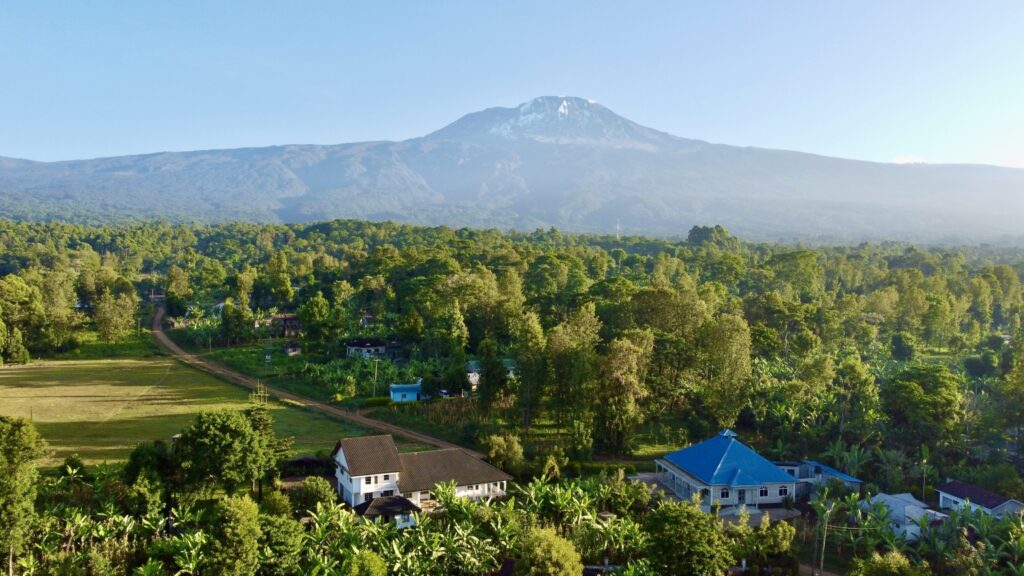
Climbing Mount Kilimanjaro is an exciting and challenging adventure that requires proper planning and budgeting. One of the most common questions asked by climbers is how much it should cost to climb Kilimanjaro. The cost of climbing Mount Kilimanjaro varies depending on several factors such as the number of days, the route, the tour operator, and the season.
On average, a 7-day Kilimanjaro climb costs between $1,500 to $4,500 per person. This includes park fees, accommodation, food, and guides. However, it is important to note that the price can be higher or lower depending on the factors mentioned above.
The number of days spent on the mountain is one of the most significant factors that affect the cost of climbing Kilimanjaro. Generally, the longer the climb, the more expensive it will be. For example, a 5-day climb will be cheaper than a 7-day climb. However, it is important to note that a longer climb may increase your chances of successfully reaching the summit as it allows for more acclimatization time.
The route chosen also affects the cost of climbing Kilimanjaro. The Marangu route is generally the cheapest, while the Northern Circuit is the most expensive. The Marangu route is also the most popular, but it has a lower success rate compared to other routes. On the other hand, the Northern Circuit route provides a more scenic and less crowded route, with a higher success rate.
Choosing a reputable tour operator is also crucial in determining the cost of climbing Kilimanjaro. A reputable tour operator will provide high-quality services and safety measures to ensure a successful and enjoyable climb. It is recommended to choose a tour operator that is registered with the Kilimanjaro National Park, as they are required to follow certain safety standards.
It is important to budget accordingly for your Kilimanjaro climb to ensure a successful and enjoyable experience. A cheap climb may compromise safety and comfort, while an expensive climb may not necessarily guarantee a better experience. Overall, the cost of a Kilimanjaro climb should be reasonable and within your budget. With proper planning and budgeting, you can have an unforgettable experience climbing the highest peak in Africa.
The 5 biggest mistakes to avoid when climbing Kilimanjaro
Climbing Kilimanjaro is an incredible experience that requires physical endurance, mental fortitude, and careful planning. However, many people make mistakes that can put their safety at risk and ruin their chances of reaching the summit. In this blog post, we will discuss the five biggest mistakes to avoid when climbing Kilimanjaro.
Underestimating the Altitude
The biggest challenge of climbing Kilimanjaro is the high altitude. Many people underestimate the effects of altitude sickness, which can be life-threatening. It is vital to acclimatize to the altitude gradually by spending several days on the mountain and taking the necessary precautions, such as drinking plenty of water and moving slowly. It is also important to recognize the symptoms of altitude sickness and to descend immediately if they appear.
Ignoring the Importance of Physical Fitness
Climbing Kilimanjaro requires a good level of physical fitness. Many people make the mistake of assuming that they can get fit while on the mountain. However, this is not the case. Climbers should prepare for the climb by engaging in regular physical activity and doing specific exercises to strengthen their legs, core, and cardiovascular system. This will help them to cope better with the physical demands of the climb and reduce the risk of injury.
Not Choosing the Right Gear
Climbing Kilimanjaro requires specialized gear that is suitable for the mountain’s unique environment. Many people make the mistake of not investing in high-quality gear, which can put their safety at risk and make the climb more challenging than it needs to be. Climbers should invest in a good-quality waterproof jacket, warm layers, sturdy hiking boots, and other essential gear. They should also make sure that their gear is suitable for the altitude and temperature on the mountain.
Rushing the Climb
Many people make the mistake of rushing the climb, which can increase the risk of altitude sickness and injury. Climbers should take their time and follow the recommended itinerary, which allows for gradual acclimatization and reduces the risk of altitude sickness. It is also important to listen to your body and rest when necessary.
Not Hiring a Professional Guide
Finally, many people make the mistake of attempting to climb Kilimanjaro without a professional guide. This can be incredibly dangerous, as the mountain’s terrain is challenging, and the weather conditions can be unpredictable. A professional guide can provide essential support and guidance, including helping climbers to acclimatize, stay safe, and reach the summit.
Climbing Kilimanjaro is an incredible experience that requires careful planning, physical fitness, and mental strength. By avoiding these five mistakes, climbers can increase their chances of reaching the summit safely and successfully. Remember that Kilimanjaro is a challenging climb, but with the right preparation and mindset, it is an achievable goal.
The biggest fear when climbing Kilimanjaro
Pros & Cons of climbing Kilimanjaro
Pros
- It’s an incredible physical and mental challenge that will test your limits. Climbing Kilimanjaro is not for the faint of heart, but for those who are willing to push themselves to their limits, it is an incredibly rewarding experience. You’ll be challenged physically, mentally, and emotionally, and you’ll come away from the climb with a newfound sense of strength and resilience.
- The views from the top are breathtaking, and you’ll feel an immense sense of accomplishment. Standing at the summit of Kilimanjaro, the highest peak in Africa, is an unforgettable experience. The views from the top are nothing short of spectacular, and you’ll feel a sense of pride and accomplishment that is hard to match.
- Climbing Kilimanjaro is a unique and memorable experience that will stay with you for the rest of your life. The climb is not just about reaching the summit; it’s about the journey to get there. You’ll meet new people, experience new cultures, and see parts of the world that few people ever get to see. It’s an experience that will stay with you for the rest of your life.
- The climb is a great way to connect with nature and disconnect from the stresses of everyday life. Kilimanjaro is located in a stunningly beautiful part of the world, and the climb is an opportunity to immerse yourself in nature and experience the beauty and tranquility of the African wilderness. It’s a chance to disconnect from the stresses of everyday life and reconnect with yourself and the natural world around you.
- You’ll have the opportunity to meet people from all over the world who share your passion for adventure. Climbing Kilimanjaro is not just about the climb itself; it’s also about the people you meet along the way. You’ll be surrounded by people from all over the world who share your passion for adventure and the outdoors. You’ll make new friends, share stories, and create memories that will last a lifetime.
Cons
- The altitude can cause altitude sickness, which can be dangerous if not managed properly. Altitude sickness is a serious concern when climbing Kilimanjaro. It can cause a range of symptoms, from mild headaches and nausea to more serious conditions like cerebral edema and pulmonary edema. It’s essential to take the necessary precautions to manage altitude sickness and ensure a safe and successful climb.
- The climb requires a significant investment of time, money, and physical preparation. Climbing Kilimanjaro is not cheap, and it requires a significant investment of time, money, and physical preparation. You’ll need to book a tour, purchase gear, arrange flights and accommodations, and spend time training and preparing for the climb. It’s not a decision to be taken lightly.
- The weather can be unpredictable and harsh, with temperatures ranging from below freezing to scorching hot. Kilimanjaro is located near the equator, which means that the weather can be unpredictable and harsh. Temperatures can range from below freezing to scorching hot, and you’ll need to be prepared for all types of weather conditions.
- The climb can be crowded, with many other groups attempting the climb at the same time. Kilimanjaro is a popular destination, and you’ll likely encounter other groups attempting the climb at the same time as you. This can make the climb feel crowded and detract from the sense of wilderness and solitude that many people are seeking.
- The climb can be physically demanding and requires a good level of fitness and endurance. Climbing Kilimanjaro is not a walk in the park; it’s a physically demanding challenge that requires a good level of fitness and endurance. You’ll be walking for several hours a day, often at high altitude, and you’ll need to be prepared for the physical demands of the climb.
5 Must-Visit places in Kilimanjaro region
Introduction
If you’re planning a trip to Tanzania, the Kilimanjaro region is a must-visit destination. Situated in Northern Tanzania, the region is home to the famous Mount Kilimanjaro and offers a plethora of natural and cultural attractions. In this post, we will explore five must-visit places in the Kilimanjaro region.
Mount Kilimanjaro
Mount Kilimanjaro is undoubtedly the star attraction of the Kilimanjaro region. It is the highest peak in Africa and one of the most iconic mountains in the world. Climbing Kilimanjaro is a popular activity, and thousands of visitors come to the region every year to attempt the climb. Even if you’re not interested in climbing the mountain, you can still enjoy its beauty by taking a day hike or a scenic flight over the mountain.
Moshi Town
Moshi is a charming town located at the foothills of Mount Kilimanjaro. It is the gateway to the mountain and the starting point for most climbing expeditions. Moshi is a vibrant town with a lively market, street vendors, and colorful cafes. Visitors can take a walking tour of the town, visit the local museum, or simply relax and soak up the atmosphere.
Materuni Waterfall
Located near Moshi, Materuni Waterfall is a beautiful natural attraction that is worth a visit. The waterfall is surrounded by lush green forests and offers stunning views of the surrounding landscape. Visitors can hike to the waterfall, take a dip in the refreshing pool, or enjoy a picnic in the beautiful surroundings.
Lake Chala
Lake Chala is a stunning crater lake located on the border of Tanzania and Kenya. The lake is known for its turquoise waters, beautiful scenery, and abundant wildlife. Visitors can take a hike around the lake, go kayaking, or simply relax and enjoy the beauty of the surroundings.
Marangu Village
Marangu is a traditional Chagga village located on the slopes of Mount Kilimanjaro. The village is known for its beautiful scenery, traditional culture, and coffee farms. Visitors can take a guided tour of the village, learn about the Chagga culture, and sample the local coffee.
Conclusion
The Kilimanjaro region is a beautiful destination that offers a range of natural and cultural attractions. Whether you’re interested in climbing Mount Kilimanjaro or exploring the local culture, there is something for everyone in this region. So, if you’re planning a trip to Tanzania, make sure to add the Kilimanjaro region to your itinerary.
Which kind of traveler are you?
Female solo traveler
Family with kids
On a budget
Get a personal call back
